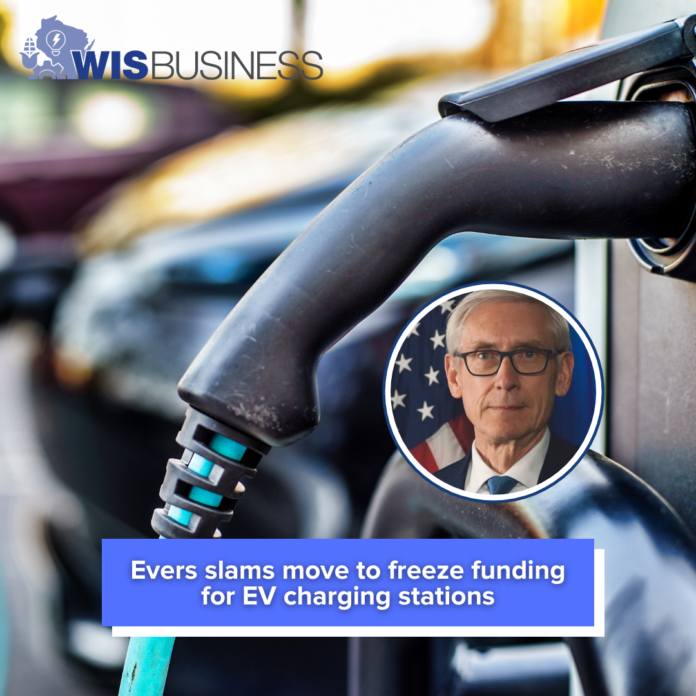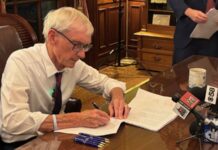Gov. Tony Evers is slamming federal officials for moving to “yank tens of millions of investments” in EV charging in Wisconsin after the U.S. Department of Transportation suspended approval of state EV infrastructure plans.
The guv’s office on Friday said the Trump administration is seeking to “retroactively suspend” EV infrastructure investments in Wisconsin that were previously approved by the U.S. DOT. The state has been submitting plans for using funds under the National Electric Vehicle Infrastructure program, got approval for three consecutive fiscal years and had already started announcing grantees and obligating funds.
Wisconsin was set to receive $78 million in federal funding under the $5 billion NEVI program, and had planned to award $23 million to 53 projects in an initial round of funding. The program was funded through the Bipartisan Infrastructure Law.
The move to suspend approval by the U.S. DOT’s Federal Highway Administration “could jeopardize, at minimum, over $7 million” for 15 projects and investments that were already approved, Evers’ office says. That’s on top of the other $55 million the state was expecting.
Evers in a statement notes the move comes about a week after he visited a Chippewa Falls Kwik Trip to tout the launch of the state’s first federally funded EV charging stations.
“This is yet another foolish Trump Administration decision affecting projects, communities, and Wisconsinites across our state, from Janesville to Tomah and Rice Lake to Green Bay and Thorp to Mosinee,” he said in a statement.
Friday’s release also says some of the projects being affected are in the 7th CD, previously represented by former Wisconsin Cong. Sean Duffy, who now leads the U.S. DOT.
In an emailed statement, a spokesperson for the U.S. DOT said the agency is “utilizing the unique authority afforded under the NEVI Formula Program to ensure the Program operates efficiently and effectively” and aligns with its policies and priorities.
“During this process, no new obligations may occur under the Program, but reimbursement of existing obligations will continue in order to not disrupt current financial commitments,” the spokesperson said.
See the letter sent to state transportation directors.






